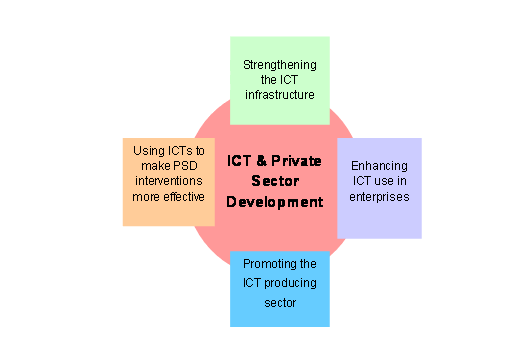| EMBARGO The contents of this press release and the related Report must not be quoted or summarized in the print, broadcast or electronic media before 19 October 2011,17:00 [GMT] (13:00 New York; 19:00 Geneva, 22:30 New Delhi, 02:00 - 20 October 2011 Tokyo) |
Geneva, 19 October 2011 - More effective use of information and communication technologies (ICTs) by government programmes to support micro- and small enterprises (MSEs) will help accelerate job creation and business growth, according to the United Nations Conference on Trade and Development (UNCTAD) in the Information Economy Report 2011: ICTs as an Enabler for Private Sector Development(1).
In the words of United Nations Secretary-General, Ban Ki-moon, "Although some countries are already taking advantage of the close links between ICTs and private sector development (PSD), much more can be done to make ICTs a powerful force for improving the competitiveness of their private sector."
The Information Economy Report 2011 reveals that the ICT dimension is frequently absent from PSD strategies, and neither policymakers nor MSE owners in developing countries are harnessing these new possibilities to the fullest.
Mobile and social media create new opportunities for private sector development
The Information Economy Report 2011 reviews a number of cases from developing countries, such as the Digital Early Warning Network, which is helping to fight pests and diseases in the United Republic of Tanzania, and the DrumNet information service in Kenya, which is helping farmers achieve higher sales volumes and incomes through the use of their mobile phones. The expanding range of mobile applications - text messaging, mobile Internet and mobile money - can deliver a multitude of highly relevant services for MSEs.
In some developing countries, high-speed wireless subscriptions now surpass fixed broadband. According to data from the International Telecommunication Union, mobile broadband penetration worldwide was about 65 per cent higher than fixed broadband penetration in 2010, but it was 1,400 per cent higher in African countries. As illustrated in table 1, however, several developing countries have yet to launch mobile broadband services.
Broadband also facilitates the use of social media such as Facebook and Twitter, and provide additional opportunities for MSEs to connect with customers, especially among the youth. Social media tools also offer a cost-effective way for small enterprises to establish a Web presence.
Governments and other institutions should apply ICTs to make PSD interventions more effective in business environment reforms by providing business development, market information and financial services to MSEs.
To be successful, ICT-PSD solutions need to factor in both user needs (in terms of what information and other inputs are needed) and possible constraints (for example, literacy rates, aversion to using new tools, scarce electricity and unaffordable user charges and prices). Involving the private sector in the design and provision of training and advisory services can help ensure that the services offered are truly demand-driven.
However, the Report also stresses that better data, more research and rigorous impact assessments are needed.
In order to assist policymakers, the Information Economy Report 2011 proposes a framework for facilitating a more systematic use of ICTs for PSD: the quality of ICT infrastructure, the use of ICTs by enterprises, the ICT-producing sector and using ICTs to make PSD interventions more effective (see chart 1).
The Report makes several policy recommendations, such as:
- (a)Including ICT modules in business skills training programmes;
- (b)Better leveraging of ICTs in support of women´s entrepreneurship;
- (c)Harnessing mobile money services to make financial markets more inclusive;
- (d)Using ICT tools to reduce the costs of business transactions and to help MSEs bring their goods and services to domestic and international markets;
- (e)Adopting regulatory frameworks to build confidence in the use of new technologies or new applications of a known technology;
- (f)Developing donor guidelines to ensure that the ICT potential is fully reflected in their PSD strategies.
The Information Economy Report and its database are available online at IER 2011 and http://Measuring-ict.unctad.org. |
ANNEX
Tables and figures
Table 1. Economies where no mobile broadband services were available by December 2010
Source:UNCTAD, Information Economy Report 2011.
Note: Countries that the CDMA Development Group and GSM Association reported had no EV-DO or HSPA mobile broadband networks in commercial operation as of May 2011.
Chart 1. Four facets of the ICT-PSD interface
Source: UNCTAD, Information Economy Report 2011.



